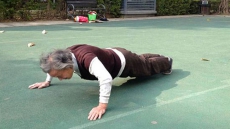U.S. regulators on Monday revoked emergency authorization for malaria drugs promoted by President Donald Trump for treating COVID-19 amid growing evidence they don’t work and could cause serious side effects.
The Food and Drug Administration said the drugs hydroxychloroquine and chloroquine are unlikely to be effective in treating the coronavirus. Citing reports of heart complications, the FDA said the drugs' unproven benefits “do not outweigh the known and potential risks.”
The decades-old drugs, also prescribed for lupus and rheumatoid arthritis, can cause heart rhythm problems, severely low blood pressure and muscle or nerve damage.
The move means that shipments of the drugs obtained by the federal government will no longer be distributed to state and local health authorities for use against the coronavirus. The drugs are still available for alternate uses, so U.S. doctors could still prescribe them for COVID-19 — a practice known as off-label prescribing.
Dr. Steven Nissen, a Cleveland Clinic researcher who has been a frequent FDA adviser, agreed with the decision and said he would not have granted emergency access in the first place.
“There has never been any high-quality evidence suggesting that hyrdoxychloroquine is effective” for treating or preventing coronavirus infection, he said, but there is evidence of serious side effects.
On Thursday, a National Institutes of Health panel of experts revised its recommendations to specifically recommend against the drug’s use except in formal studies, and “that, I’m sure, had influence on the FDA,” Nissen said.
The actions by FDA and NIH send a clear signal to health professionals against prescribing the drugs for coronavirus.
Trump aggressively pushed the drug beginning in the first weeks of the outbreak and stunned medical professionals when he revealed he took the drug preemptively against infection.
No large, rigorous studies have found the drugs safe or effective for preventing or treating COVID-19. And a string of recent studies made clear they could do more harm than good.
The FDA granted emergency use of the drugs for coronavirus patients in late March at the same time the U.S. government accepted 30 million doses of hydroxychloroquine and chloroquine that had been donated by two foreign drug manufacturers. Millions of those doses were shipped to U.S. hospitals to treat patient who weren’t enrolled in clinical trials.
But the FDA previously warned doctors that it had seen reports of dangerous side effects and heart problems reported to poison control centres and other health systems.
The agency said Monday it revoked the authorization in consultation with the Biomedical Advanced Research and Development Authority, or BARDA, which had requested the emergency use.
BARDA's former director said in April that he was removed from his job because he resisted political pressure from Trump appointees to allow widespread use of the malaria drugs. Rick Bright said he worked with FDA senior staff to limit the drugs’ authorization to patients hospitalized with COVID-19 and under professional supervision.
Among other issues, Bright objected to the fact that some of the doses imported by the U.S. government were manufactured at facilities in India and Pakistan that had not been reviewed by the FDA.
The FDA says it sampled and tested the imported drugs to confirm they met the agency’s standards for safety and quality.





